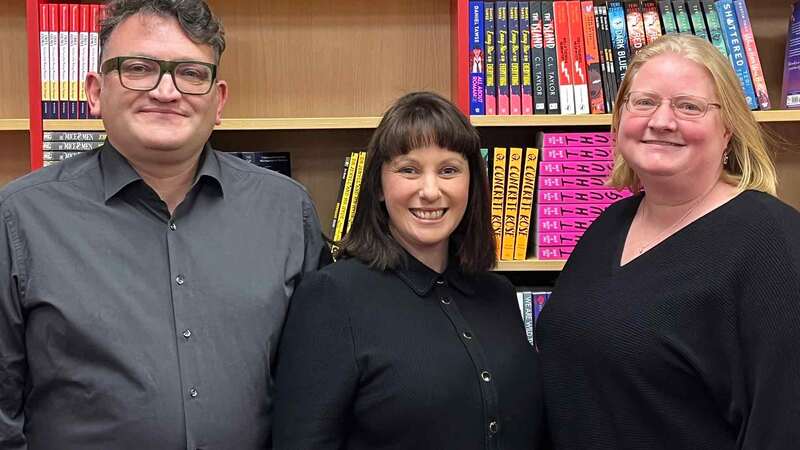You are viewing your 1 free article this month. Login to read more articles.
Libraries to adopt 'safety first' approach for July reopenings
Libraries are preparing to reopen on 4th July with a “safety first” mindset, backed by a toolkit from Libraries Connected and a greater confidence in their digital services.
With Phase 3 of Boris Johnson's coronavirus exit plan coming into effect on 4th July at the earliest, Libraries Connected has put together a list of principles to guide library reopenings, including that they should be phased and planning should anticipate some services may need to be suspended depending on new government and public health guidance. It is also producing a “recovery toolkit”, which should be released by the end of the month, looking at all details of library operations to identify risks and suggest strategies for dealing with them.
In a blogpost, Isobel Hunter, c.e.o. of Libraries Connected, said many libraries were planning appointment systems to provide access to IT, exploring click-and-collect borrowing rather than browsing and hoping to offer a home library service to vulnerable users. However, she warned the full library experience was “some way off” and the digital offer many had been offering during lockdown would still be vital.
She told The Bookseller: “We’re producing our service recovery toolkit to ensure that libraries have reliable, practical guidance, based on the latest public health advice, that covers all aspects of library use. Created by heads of library services, it includes issues such as browsing, behaviour management, social distancing and staff welfare, all with the safety of staff and users at its core.
“Reopening libraries has to be a phased process in line with the latest safety advice and all planning should be based on risk assessments, carried out with staff, unions and health and safety teams. It is also critical that libraries are given enough notice about reopening to properly prepare their buildings and their staff to keep everyone safe.”
According to Ian Anstice, public librarian for Winsford and editor of Public Libraries News, the toolkit from Libraries Connected will be useful for risk assessment in providing a checklist to libraries, but, equally useful will be its capacity to “back up” chief librarians should they come under pressure to reopen fully from local councils.
Pointing out there are a number of different considerations for libraries in contrast to shops, that they expect a return of their stock for one, he predicted most would begin with click-and-collect services, with usual offerings having to wait until next year.
“There is no such thing as a uniform librarian response to the prospect of opening but I think the overriding feeling is that whatever is done, should be done with safety pre-eminent … None I have seen are going for business as usual,” said Anstice.
“Councils’ risk averse approach, which can sometimes get in the way, may be quite handy, What you absolutely don’t want is a national newspaper leading with ‘My father died because of a library book’. A lot of our audience are either children, pregnant mums, senior citizens and the vulnerable generally. We are torn because, for those who are vulnerable, having a library out there is a really useful tool, for job hunting for example, but it’s health and safety first.”
National libraries never “closed” as such, Anstice hastened to point out, with their “increasingly important” digital service “busier than it ever has been before”. The crisis has made digital natives of staff who wouldn’t otherwise have had the time for such training and has prompted investment from “a lot” of library services in e-books, he said, as has been exemplified by the recent surge in e-book loans and packed attendance of virtual events.
“I think we’ve had a good crisis so far,” said Anstice, “in that there have been a lot of good news stories coming out, in terms of library workers showing the initiative and moving straight onto video Rhyme Times and the home delivery of books. A 101-year-old lady needed some new talking books in our area, so we got a library worker to drop off some and that was lovely; and that is happening in service after service, so it has been very positive from that point of view.
“Tank design in the Second World War moved really quickly and that’s what library services are doing; how we’re delivering technology has massively accelerated in the period of a month or two in a way that probably if left alone would have taken years and years. E-book lending is gigantically more important now than it was before. For a lot of library authorities it was an embarrassment, because you often don’t have many e-books and, so, if you have a waiting list that could be a year long for the e-book. But now we’ve had to invest an awful lot more. A lot of authorities have put more money in, and so now it is a service to be proud of, and I would say the same with e-magazines and our online chat services. It has been a big technological change; we’ve changed more in two months than we have done in five years."
He added: "When it comes to reopening, we need to continue doing this. Greenwich Libraries pointed out they were getting 400-500 people for one of their Rhyme Times, easily 10 times more than what they had been getting with libraries open. The question for us is what the ‘New Normal’ will look like - how do we keep up with higher public expectations of our digital services when we’re going back to physical buildings, and when councils also may be under more financial pressure?”
Nick Poole, c.e.o of the Chartered Institute of Library & Information Professionals, said the safety of both users and staff must be the “primary concern” when it comes to the strategy for reopening libraries. He emphasised to The Bookseller it is a "'can’ open, not a ‘will’ or a ‘must’" from 4th July, meaning it is essentially at the discretion of the individual authority to decide whether it is safe to open once we are into Phase 3. "Open" will mean different things to different authorities, he said, with some planning to resume "low or no-contact" services only and then phasing in additional services.
Poole also seconded that, just as strides have been made for libraries in improving their digital offerings, that he would caution both central and local governments against further public spending cuts in an attempt to "pay for the cost of Covid-19".
He commented: “Just as libraries enhanced their digital programmes to support their communities during Covid-19, we are now preparing to ensure that we can support our society safely and sustainably as it emerges from lockdown.
“Our primary concern must be the safety and welfare of everyone who interacts with the library, including both users and staff. We need to ensure that the reopening of public libraries is part of a managed plan. We are pleased to be working with Libraries Connected to support their Toolkit to enable libraries to start to re-introduce services on a managed basis in the coming weeks and months.
“At the same time, it is important not to lose the new online audience that has found its way to the library during the crisis. We hope that, looking ahead, digital services will take their place alongside physical ones as an equally valid way to serve our communities.
“Our big concern, however, is that after a decade of austerity, we see further public spending cuts to pay for the cost of Covid-19. This would be a profound mistake and one which we encourage central and local government to avoid making.”



















